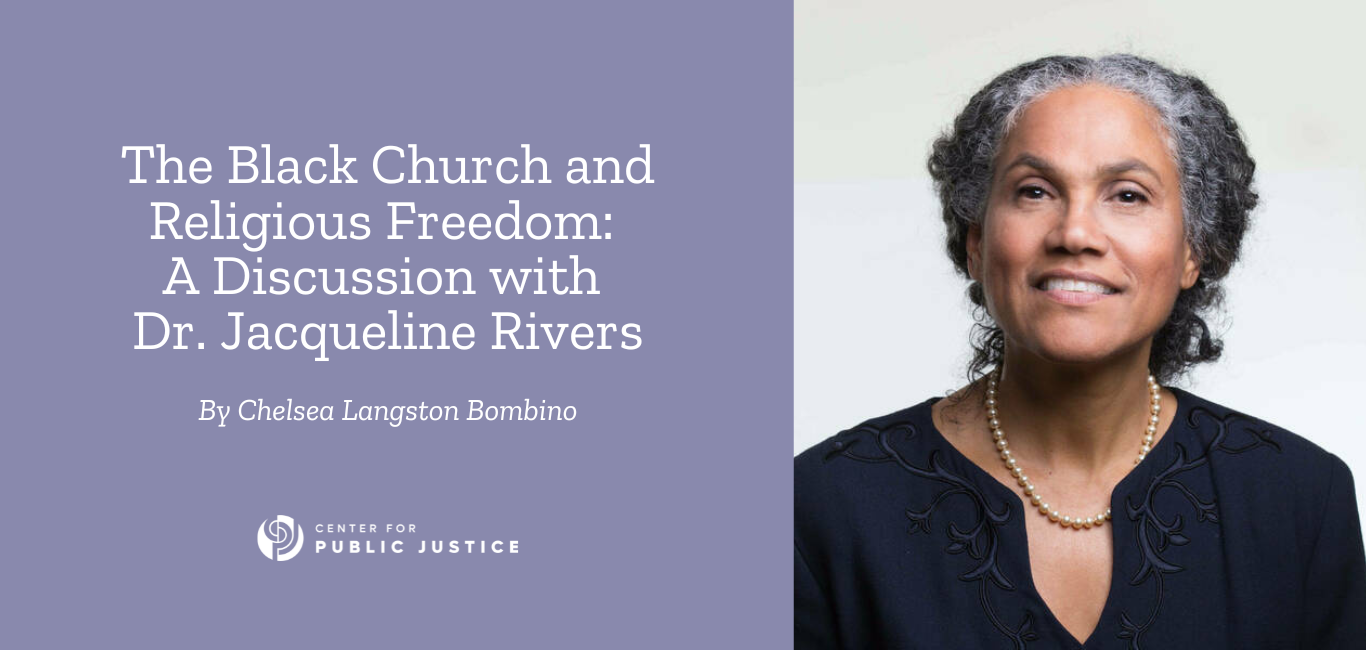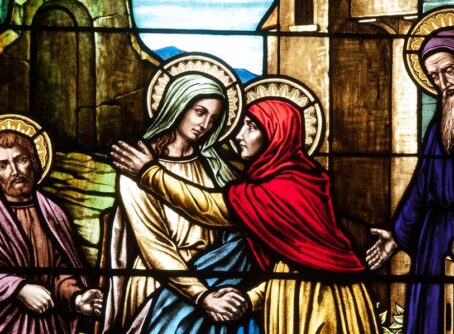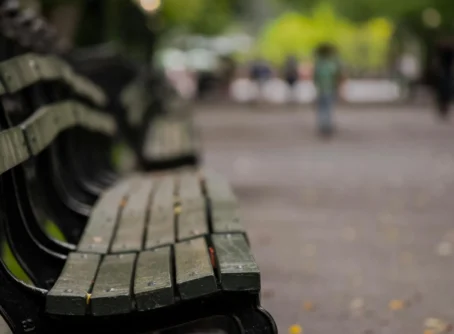
On September 28-29, 2023, Notre Dame Law School’s Religious Liberty Initiative hosted the Black Church & Religious Freedom Conference in partnership with the Seymour Institute for Black Church and Policy Studies, whose Founding Director is Rev. Dr. Eugene Rivers, and whose current Executive Director is Dr. Jacqueline Rivers.
The Religious Liberty Initiative works to live out the university’s Catholic mission of integrating education, research and service. Their vision emphasizes a world where peaceful flourishing is harnessed through strong legal protections and a cultural embrace of freedom of religion or belief. Their mission is to “promote human flourishing by serving as a source of advocacy, counsel, scholarship, training, fellowship, and hope in defense of the fundamental human right to the freedom of religion or belief for all people.”
How Racial Justice and Religious Freedom Intersect
The conference’s primary aim was to uplift and educate the broader religious freedom community about the profound influence the Black Church has had in advancing religious freedom. Additionally, it explored current religious freedom challenges that particularly affect the Black Church. The conference strove to bring people of different faith traditions together to explore the intersections between religious freedom and racial justice.
The conference featured diverse panel discussions that sparked lively conversations. The inaugural panel, themed “Religious Freedom and Racial Justice,” included Dr. Youhuru Willians with the Racial Justice Initiative at the University of St. Thomas, who offered: “At the core, when we talk about religious freedom, we’re talking about a struggle with democracy…Your role as faith leaders is absolutely essential in the struggle.”
The second panel of the first day centered on “LGBTQ+ Issues.” One of the panelists, Tim Schultz of 1st Amendment Partnership, emphasized the historic importance of the Black Church in advancing justice: “There is a desire to seek justice in public policy. The Black Church has gotten it [more] right in the fight for justice in American history than any other Christian streams in American history.”
Among the second day’s panel themes was “Religious Ministries Reaching Vulnerable Black Populations.” Rev. Mark V. Scott of Azusa Christian Community stated that religious freedom “is the freedom to be people of action and to keep on doing it, to sustain action. The freedom, for us, is enshrined in the Word of God. Where the spirit of the Lord is, there is freedom.”
This innovative conference was certainly one of the first, if not the first, specifically devoted to religious freedom and the Black Church. As such, the content covered was a much needed first step toward a deeper understanding of the opportunities, challenges and assets of lifting up the role of religious freedom with respect to both civic engagement and social service.
Shortly before the conference, I had the opportunity to sit down with Dr. Jacqueline Rivers to discuss the theme of enacted religious freedom in the Black Church more generally, as well as her hopes for the conference in particular. Dr. Jacqueline Rivers, a Harvard lecturer and prominent scholar at Notre Dame and Baylor, is a leading figure in the realms of religious freedom and pluralism. Dr. Rivers is the executive director of the Seymour Institute for Black Church and Policy Studies, which focuses on exploring the relationship between religion, particularly within the Black church tradition, and public life. In collaboration with ecumenical Black church leaders, Dr. Rivers advocates for a civic love ethic inspired by Dr. King, transcending political polarities. Dr. Rivers is expanding the narrative of religious freedom beyond a white-evangelical perspective, championing the capacity of Black communities to utilize their religious freedom to promote faith-inspired, pro-poor, and pro-family, and pro-social policies.
Dr. Rivers on Enacted Religious Freedom
As a scholar and leader, she has been instrumental in advancing the cause of religious freedom for all, including minority groups, and fostering religious coexistence in pluralistic societies. Pioneering the concept of enacted religious freedom within Black faith communities, Dr. Rivers has written: “Considerable attention has been paid to religious freedom claims and the laws that protect those freedoms; less attention has been paid to how religious freedom is used. The Civil Rights Movement of the 1960s and the abolitionist movement were among the most consequential exercises of enacted religious freedom. Both of these efforts transformed the nation. However, whites have used their religious freedom to the great detriment of Blacks.”
Chelsea Langston Bombino (CLB): Dr Rivers, can you describe a bit about what the Seymour Institute is and how it approaches the issue of religious freedom?
Dr. Jaqcueline Rivers (JR): The Seymour Institute for Black Church and Policy Studies has roots going back several decades, but in this form, it was officially established in 2019. Our organization explores the multidimensional relationship between faith, justice, and public policy, particularly within the context of the Black Church in the United States. With a strong commitment to advancing research, scholarship, and discourse, the institute addresses critical issues that affect African American communities. It places a central focus on understanding how the Black Church influences public policies and advocates for social change. Through encouraging dialogue, conducting research, and providing valuable resources, the Seymour Institute works to promote justice, fairness, and the empowerment of Black communities.
Collaborating closely with leaders from various Black church denominations, our objective, exemplified by recent events such as the Black Church and Religious Freedom Conference at Notre Dame’s Law School, is to bring to the forefront critical issues vital to the Black Church, such as racial justice. We aim to examine these matters through the lens of religious freedom, exploring how religious freedom both influences and intersects with these issues. This is crucial because the Black Church may not fully recognize its own use of religious freedom, while the White Church has yet to expand its discourse on religious freedom to encompass subjects of utmost importance to the Black Church. The relationship between the White Church and the Black Church concerning religious freedom is complicated. On one side, the White Church often fails to acknowledge the ethical power and theological authority of the Black Church when discussing religious freedom. Conversely, the Black Church has not, for the most part, participated in explicit conversations about religious freedom within the broader community, even though it has a long history of embodying and epitomizing the concept of enacted religious freedom.
One of the goals of this conference, and of our present work more generally, is to help Black Church leaders and institutions think and act critically and reflectively about questions such as: “How does our religious freedom impact our communities? Why is it important? How has it played out?”
This is important, in part, because the Black Church does not necessarily recognize the extent to which we have been using our religious freedom. But also because the White Church has not been willing to broaden their discussion of religious freedom to talk about the things that are important in the Black Church and its congregations: smaller congregations with fewer resources facing many, many pressing issues. It’s hard to take on an additional issue. Many in the Black Church feel that they don’t see the people who are calling them to take on religious liberty issues actually investing in the issues that are most relevant and timely to the Black Church. So it’s an important message for the White Church. For those that want to advance religious freedom, they should consider embracing and taking on and caring about issues that are important to the Black Church.
CLB: Dr. Rivers, can you describe the connection between institutional religious freedom and the Black Church, historically and presently?
JR: For Black Christians in America, religious freedom has always been enacted at the institutional level. For instance, consider the founding of the African Methodist Episcopal Church (AME) as the first Black denomination. When Bishop Richard Allen and other Black Christians walked out of a segregated church, they weren’t just seeking social service; they were restructuring and creating their own institution, Mother Bethel AME Church. This act was about changing the system.
The historical context in which the Black Church emerged is one of profound significance. Born from the crucible of slavery, this institution was not merely a place of worship but a center for collective empowerment and resistance against the dehumanizing forces of racism. In a world that sought to deny them their humanity, enslaved Black people discovered in the Black Church a realm of spiritual liberation and moral authority. It became a refuge where religious freedom was not just practiced but lived, demonstrating that freedom of faith is a fundamental human right.
Or take the Civil Rights Movement. Not only was Martin Luther King, Jr. a truly inspirational leader, but he was also part of an organization—Southern Christian Leadership Conference. This institution served as a platform for his efforts as well as many others. This organization collaborated with other clergy members and expanded the movement to various cities. Therefore, it has always been crucial to enact our religious freedom in the context not only of our individual private lives, but of the institutions that we formed in public life.
In the landscape of American religious life, the Black Church stands as an enduring symbol of resilience, hope, and moral authority. It has often been a sanctuary for African American communities, providing organizing power, guidance, and spiritual strength in the face of adversity. Yet, the Black Church’s role in promoting and embodying religious freedom remains an underexplored aspect of its profound legacy.
This brings us to the critical work being undertaken today to bridge this gap and emphasize the critical connection between the Black Church and religious freedom. Events such as the Black Church and Religious Freedom Conference l, serve as important milestones in this journey. The conference focuses on addressing key issues relevant to the Black Church, including racial justice and the teaching of racial history in public schools, through the lens of religious freedom. Its goal was to explore how religious freedom intersects with these matters.
In the end, the Black Church’s embodiment of religious freedom is a testament to its enduring impact on American society. It represents the unwavering pursuit of faith and freedom in the face of adversity and remains a beacon of hope and moral authority. As discussions around religious freedom continue to evolve, acknowledging the Black Church’s vital role in shaping this conversation is a step toward a more just and equitable future. There are so many individuals and institutions in the Black Church who, despite the religious freedom threats and combined racial justice violations, are continuing to incarnate their faith with less resources and living out their religious freedom.
CLB: Can you share a story of someone who’s been an inspiration in your work, like a spiritual predecessor?
JR: My husband [Pastor Eugene Rivers] is a huge inspiration. Additionally, Fannie Lou Hamer is a favorite of mine. She demonstrated unwavering commitment to Christianity, empowered civil rights activists through her heartfelt praise songs, and fearlessly stood up to adversaries, whether it was a landowner trying to evict her or a Vice President pressuring her to change her stance on abortion, which she firmly rejected. Her dedication to establishing a farm to feed the poor and her principled stance against abortion are remarkable. And she, like my husband, was solidly grounded in the life of an institution: the Black Church. There have been books and other content produced on her that tries to strip her identity down to her civil rights activism, removing the role that her deep faith and her deep embeddedness of institutional life played in shaping her impact.
Conclusion
The Black Church & Religious Freedom Conference provided an opportunity to plant seeds for future growth with respect to exploring the Black Church’s approach to, and need for, religious freedom. This conference emphasized the profound influence of the Black Church in advancing religious freedom and explored the intersections between religious freedom and racial justice. As the intersections and complexities between issues most relevant and timely to Black communities and religious freedom continue to become better understood, more challenges will surely arise. But, as Dr. Jacqueline Rivers stated during the conference: “We need to protect the right of people of all faiths and no faiths to follow their conscience…we should be compassionate and humane and welcoming. We’ve got to speak the truth in love.”
Chelsea Langston Bombino is a believer in sacred communities, a wife, and a mother. She serves as a program officer with the Fetzer Institute and a fellow with the Center for Public Justice.





